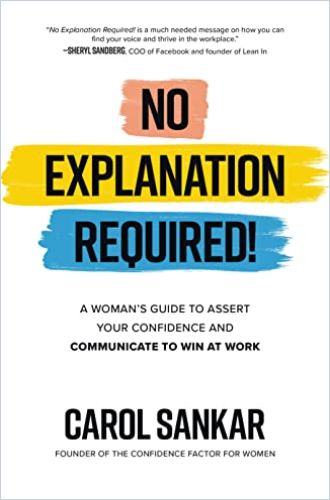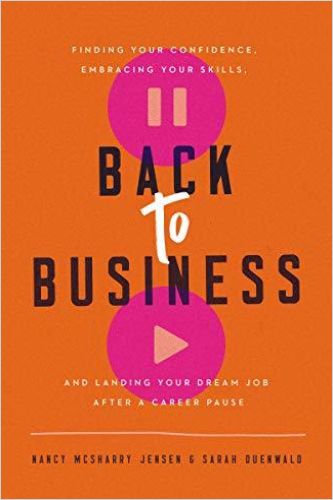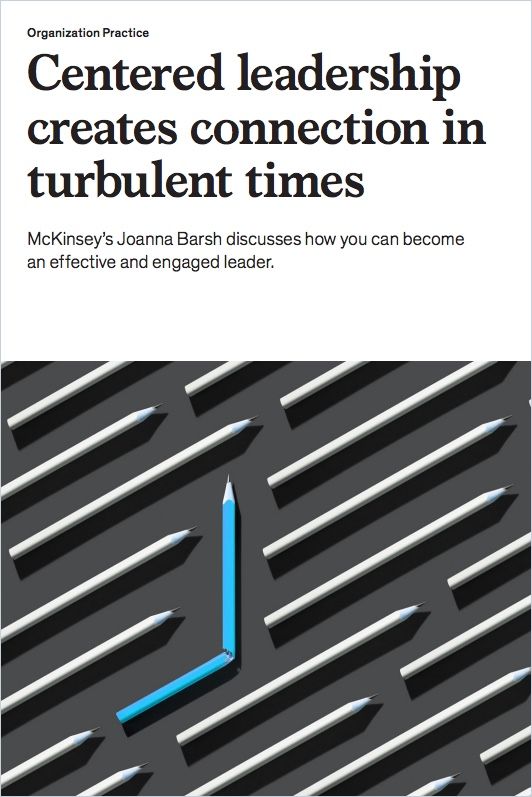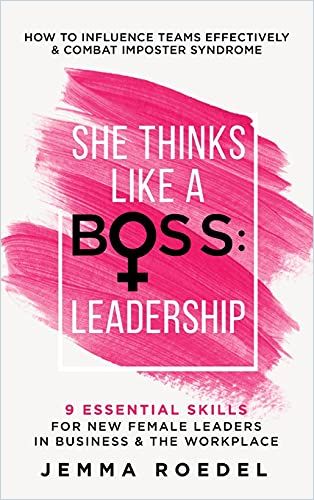Office Politics for Women

As long as there is an office, there will be office politics. The basic rules of etiquette your mother likely taught you will suffice to navigate your daily work relationships. But sometimes, these rules don’t work when carving out career success. The received wisdom about taking the lead, speaking out at work and letting your bosses know your ambitions can backfire. This causes problems for success-oriented women as well as people of color and LGBTQ+ employees, but it also hurts companies. Companies with unaddressed equality and diversity problems limit their success in the marketplace. Unaddressed biases can lead to the “broken rung” effect, where women aren’t considered for management. When young talent doesn’t see people that look like them in leadership roles, they think twice about whether or not they’re at the right organization.
For many women, it’s a tedious, difficult slog to the top through a workplace that doesn’t really want you at the top anyway.
The Rules of the Game
Everyday sexism sets up barriers to women’s success. It exists in different, sometimes subtle forms: the unconscious expectation that women will be gracious and helpful at all times; networking opportunities that exclude women, like golf games “with the boys”; workplace behavior where women’s contributions are buried, or worse, where someone else takes the credit; or penalties for behaviors rewarded in men. The results of unconscious biases accumulate over the course of a woman’s career, with women putting in twice as much time and effort to attain the same promotions as men. The rules for office success don’t work to level the playing field for women – the gender pay gap offers evidence of this.

This Is How Everyday Sexism Could Stop You from Getting That Promotion
The New York TimesNiccolo Machiavelli wrote The Prince as a manual for helping the leaders of his day acquire and keep power. Some princes inherit kingdoms while others must conquer them. Princes who inherit their status are instantly accepted. It takes many mistakes for them to lose support. Conquering princes, however, are treated with suspicion about their abilities. Today’s “inheriting princes” of the workplace are white, college-educated men. The world of work was built to protect and support them. Women are the “conquering princes” according to author Stacey Vanek Smith in Machiavelli for Women. The rules that work for entrenched princes do not work for conquering princes. As “conquering” leaders in the workplace, women must prove their merit as they disrupt the status quo.

Confirmation bias means that, since leaders have mostly always been white men, when you see a white man, you automatically see leadership potential. People expect leaders to be aggressive, outspoken and ambitious, but expect women to be empathetic, nurturing and kind. People admire ambition in men but dislike it in women. As a result, they don’t consider women who display it potential leaders. This creates a “career hotbox” situation where women can’t win no matter where they stand. Women who are kind and nurturing are well-liked, but they are also often given undervalued and underpaid supporting roles. Women also get trapped in “Cinderella Syndrome,” cautions Vanek Smith. Cinderella’s stepmother said she could go to the ball if she ticked off a long list of chores. Similarly, women tick down a long list of to-dos aiming for promotion, yet somehow when they get to the end of that list, they just get another list. While managers reward men based on estimates about their potential in the future, women must prove themselves many times for the same consideration.
Women’s progress is hindered even without one egregious incident or an official policy that is discriminatory.
Jessica Nordell
Companies laud men who are decisive and outspoken, but these same qualities in women are viewed as aggression. Women entrepreneurs raising capital face similar dilemmas. The world is slowly changing, but a double standard still ensnares women. What’s the best way to navigate through it?
Make the Double Standard Work For You
Advocating fiercely on behalf of others is the exception to society’s unconscious bias against women acting with apparent ambition. Managers respect men who advocate for themselves in negotiations, even if unsuccessful, while women behaving the same way are viewed as pushy or greedy. Inheriting princes have lifelong support, but conquering princes must work to build useful alliances. Vanek Smith suggests women work with prevailing biases in mind to get ahead. You’ll be successful in getting more of what you want by talking in terms of “we” and a “future-together situation,” as the nurturing team player that you are and others unconsciously expect you to be. Illustrate how what you want is a win-win. According to Vanek Smith, however, the number one most important ingredient for career success is confidence. Take Ann Hiatt’s advice in Bet on Yourself and develop the ability to recognize and seize opportunity when you see it.
The power of confidence is absolutely supreme. It is more powerful in your success than competence. It dictates your happiness, your salary.
Stacey Vanek Smith
In The Adventures of Women in Tech, Alana Karen advises that you innoculate against the perception that you’re just a “ladder climber” by forming and nurturing genuine work relationships. This way, people get to know you and come to trust you. Mostly this plays to women’s presumed strengths of greater emotional intelligence and relationship-building.

Use your soft skills to “win friends and influence people,” but find the courage to develop your own voice and promote your own cause. That might mean sometimes having to say no, and risk people disliking you. But that will leave you open to pursuing opportunities that lead to accolades and respect.
How can we be successful if at the root of everything we do, we don’t think or feel that we belong; if every time we have an idea, we wonder if it’s our place to speak up; if every time we disagree, we fear the downsides of sharing our thoughts? That adds up, and ultimately means we either don’t act like ourselves or our jobs jail us without leveraging all our talents.

Pursue Respect, Not Likability
For centuries, society lauded women for their quiet servitude. This stereotype disadvantages women in the workplace. They are simply less valued in many companies. Despite the obstacles, women must advocate for themselves and not shrink from offering their opinions and analysis. If you don’t assert yourself, not only will your work go unheralded, but also people will view you as uninterested in leadership. Don’t wait to be recognized for your merits. Ask for what you want. Just beware that women often pay a penalty men don’t face for asking in the first place. Prepare to ask for a raise by understanding your market value. Prepare to lead a new project by demonstrating your willingness to lead. How you communicate can make the difference, says author Carol Sankar in No Explanation Required!

Be direct. Don’t preface your opinion by saying “I think.” Respond professionally after criticism or when faced with a crisis, not emotionally. Eradicate over-apologizing, over-explaining and passive communication styles. Your nonverbal style matters too. Dress for the success you’re aiming for. Sankar suggests thinking up a can-do alter ego for yourself, one that knows what she wants and is prepared to “fake it until she makes it.” This is one strategy around imposter syndrome to put distance between you and your insecurities. Walk and talk the part of your high-performing self.
There are many things you can’t control, but you can control your reactions to negative people or bad news. Check yourself, especially when dealing with other people with volatile emotions. You may unconsciously mirror their response and respond impulsively instead of deliberately. In these situations:
- Understand what personal issues you have that might trigger an inappropriate emotional response in you.
- Take a moment to pause before responding, especially if you feel emotional.
- Take control of your tone and measure the language you use.
- Do not be patronizing or passive-aggressive.
Remember that not every vexing situation requires a response; it might benefit you more not to respond. But if you do, take your time, respond thoughtfully and be as brief and professional as possible. Highly political workplaces often breed low-trust cultures, which hampers agility and innovation. Build respect and the confidence others have in your leadership by building trust.
Over-explaining is a form of apologizing. We over-explain everything while undervaluing our contributions as leaders.
Carol Sankar

Remote Work Amplifies Some Office Politics Problems
The flexibility to stay at home creates both opportunities and potential burdens for women, especially those navigating caregiving issues or disabilities. At the same time, it upends office politics that favor the gregarious worker with people skills over the more introverted high performers who prefer to just focus on their work.

As workers prepared to go back to their offices during the waning days of the pandemic, many respondents to a New York Times survey reported their dread about returning to an “old boy’s club” work culture. Remote workers need to be sure they aren’t forgotten for promotions since they aren’t as visible at the office. Generally, though, remote work allows people’s work to speak for them, and this benefits women.

A Two-Year, 50-Million-Person Experiment in Changing How We Work
The New York TimesAccording to a Slack survey of 10,000 office workers, working from home actually increased many people’s feeling that they fit in with their work culture, especially women and people of color. Kristen Egziabher asked for a promotion before the pandemic but was turned down because her bosses said although they appreciated her work, they felt they didn’t really know her. Several months into the pandemic and working remotely, she was finally awarded a promotion, progress she ascribes to her bosses judging her solely by her work product.

Cultivate Mentors and Allies
In The Ambition Decisions, Hanna Schank and Elizabeth Wallace point out what should be obvious: unsupportive work cultures discourage women, people of color and LGBTQ+ workers from seeking leadership roles. One way to develop a work environment that encourages diversity and supports aspiring junior colleagues is through a mentor program or other career development initiative. Build relationships with other ambitious women to support each other’s goals.

Women are well aware that men often interrupt during meetings, or ignore their suggestions until later when a man brings up the same suggestion. Recognize this is a deeply entrenched phenomenon that even happens to Supreme Court Justices. An analysis of lawyers presenting their case before the Supreme Court found they interrupted the women Justices three times more often than male Justices, even though it certainly did not benefit their case to be so rude. As a result, women Justices spoke less often. However, women in this situation who say something like “please let me finish” set themselves up for an indirect conflict which, due to unconscious gender biases, makes them look bad and weakens their influence. Women in the Obama White House, faced with this situation, teamed up to amplify each other’s good ideas by drawing attention to formerly offered suggestions that were ignored, so they received due consideration.
If there’s only a token woman at the top, it sets up a scenario where ambitious women will target her role; it deters women from acting as mentors for other women. Yet women in leadership are the primary source of opportunities for women organization-wide. So seek to build an effective network of allies willing to multiply opportunities and promotions for other people.

Karen suggests companies that would like to promote more women to leadership roles can:
- Actually promote them.
- Offer them the flexibility they might need to juggle caregiving responsibilities.
- Encourage diverse viewpoints and robust dialogues.
- Strive to be more inclusive.
Generally speaking, women will be a lot happier when they know their company is making efforts to eradicate unconscious bias and unequal pay.
Read more:

Read these Journal articles for more insight into navigating gender dynamics at work:
























